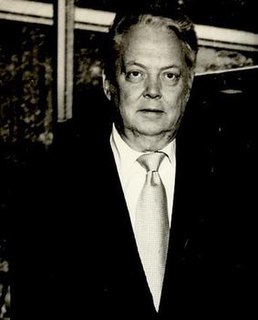A Quote by Gordon W. Allport
Open-mindedness is considered to be a virtue. But, strictly speaking, it cannot occur. A new experience must be redacted into old categories. We cannot handle each event freshly in its own right. If we did so, of what use would past experience be?
Related Quotes
If the state cannot be entirely composed of good men, and yet each citizen is expected to do his own business well, and must therefore have virtue, still inasmuch as all the citizens cannot be alike, the virtue of the citizen and of the good man cannot coincide. All must have the virtue of the good citizen - thus, and thus only, can the state be perfect; but they will not have the virtue of a good man, unless we assume that in the good state all the citizens must be good.
We learn in the past, but we are not the result of that. We suffered in the past, loved in the past, cried and laughed in the past, but that's of no use to the present. The present has its challenges, its good and bad side. We can neither blame nor be grateful to the past for what is happening now. Each new experience of love has nothing whatsoever to do with past experiences. It's always new.
I should say that the useful results of science had accumulated, but that there had been no accumulation of knowledge, strictly speaking, for posterity; for knowledge is to be acquired only by a corresponding experience. How can we know what we are told merely? Each man can interpret another's experience only by his own.
The decision to let go of that which has completed its course in your experience is even more important than the decision to welcome new ideas. You cannot walk forward by looking backward. New wine cannot be put into old bottles, for the Bible states that the old bottles will break. You intuitively know what should depart from your life.
Believing, repenting, and the like, are the product of the new nature; and can never be produced by the old corrupt nature... as the child cannot be active in his own generation, so a man cannot be active in his own regeneration. The heart is shut against Christ: man cannot open it, only God can do it by his grace.
Concerned to reconstruct past ideas, historians must approach the generation that held them as the anthropologist approaches an alien culture. They must, that is, be prepared at the start to find that natives speak a different language and map experience into different categories from those they themselves bring from home. And they must take as their object the discovery of those categories and the assimilation of the corresponding language.
The fear of AIDS imposes on an act whose ideal is an experience of pure presentness (and a creation of the future) a relation to the past to be ignored at one's peril. Sex no longer withdraws its partners, if only for a moment, from the social. It cannot be considered just a coupling; it is a chain, a chain of transmission, from the past.





































